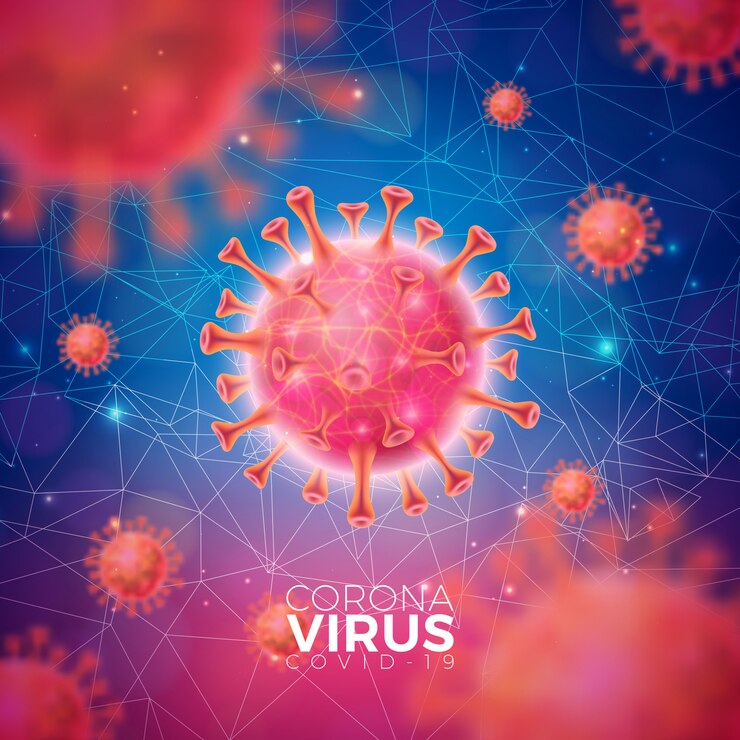COVID-19 Response
Our Response

Navigating Through COVID-19: A Message of Unity and Resilience
In the face of the unprecedented challenges posed by the COVID-19 pandemic, we stand together as a global community, united in our commitment to overcoming adversity and building a resilient future.
1. Prioritizing Health and Safety: The health and safety of our community, employees, customers, and partners remain our top priority. We have implemented rigorous measures to ensure a safe environment, adhering to guidelines from health authorities and experts.
2. Supporting Frontline Heroes: We extend our deepest gratitude to the healthcare professionals, first responders, and essential workers who have displayed unwavering dedication and courage. Their selfless efforts inspire us to stand strong in the face of adversity.
3. Adapting to Change: The pandemic has accelerated the pace of change, compelling us to innovate and adapt swiftly. From remote work solutions to digital transformations, we embrace the opportunity to evolve and emerge stronger.
4. Community Outreach: Now more than ever, we recognize the importance of supporting those most affected by the crisis. Through community outreach and collaborations, we are working to provide assistance, resources, and relief to those in need.
5. Fostering Unity and Resilience: In times of uncertainty, unity becomes our greatest strength. We encourage one another to stay connected, support local businesses, and foster a sense of resilience that will carry us through these challenging times.
6. Embracing a Sustainable Future: The pandemic has underscored the importance of sustainability and responsible practices. We are committed to building a more sustainable and equitable future, mindful of our impact on the environment and society.
7. Looking Forward with Hope: As we navigate this global crisis, let us draw strength from our collective resilience, compassion, and innovation. Together, we can rebuild, recover, and create a future filled with hope, empathy, and solidarity.
COVID-19 Information and Awareness
The COVID-19 pandemic has profoundly impacted our lives, communities, and global society. As we navigate these unprecedented times, it is crucial to stay informed, vigilant, and compassionate.
1. Understanding COVID-19: COVID-19, caused by the novel coronavirus SARS-CoV-2, is a highly contagious respiratory illness. It spreads primarily through respiratory droplets when an infected person coughs, sneezes, or talks. Common symptoms include fever, cough, shortness of breath, fatigue, and loss of taste or smell.
2. Prevention Measures: Practicing good hygiene habits is essential in preventing the spread of COVID-19. Wash your hands frequently with soap and water for at least 20 seconds, especially after being in public places or touching surfaces. Use hand sanitizer containing at least 60% alcohol if soap and water are not available. Wear a mask in public settings where social distancing measures are difficult to maintain, and avoid close contact with individuals who are sick.
3. Vaccination: Vaccination is a critical tool in controlling the spread of COVID-19 and protecting public health. Vaccines have been developed and authorized for emergency use to prevent severe illness, hospitalization, and death from COVID-19. It is essential to follow local guidelines and get vaccinated when eligible to help achieve herd immunity and end the pandemic.
4. Mental Health and Well-being: The COVID-19 pandemic has taken a toll on mental health and well-being worldwide. It is normal to feel stressed, anxious, or overwhelmed during these challenging times. Practice self-care, maintain social connections virtually, and seek support from mental health professionals or support groups if needed.
5. Community Support and Solidarity: In times of crisis, solidarity and community support are more important than ever. Reach out to vulnerable individuals in your community, offer assistance to those in need, and show kindness and empathy to frontline workers and healthcare professionals who are working tirelessly to combat the pandemic.
6. Reliable Information Sources: Rely on trusted sources of information such as the World Health Organization (WHO), Centers for Disease Control and Prevention (CDC), and local health authorities for accurate and up-to-date information on COVID-19. Be cautious of misinformation and rumors that can fuel fear and confusion.


Understanding and Addressing COVID-19
The COVID-19 pandemic has brought unprecedented challenges to communities worldwide, impacting every aspect of our lives. As we navigate these uncertain times, it is crucial to stay informed, take proactive measures, and support one another in overcoming this global crisis.
1. Understanding COVID-19: COVID-19, caused by the novel coronavirus SARS-CoV-2, is a highly contagious respiratory illness that spreads through respiratory droplets when an infected person coughs, sneezes, or talks. Common symptoms include fever, cough, shortness of breath, fatigue, and loss of taste or smell. While most cases are mild, severe cases can lead to pneumonia, organ failure, and death, particularly among older adults and individuals with underlying health conditions.
2. Prevention and Mitigation: Preventing the spread of COVID-19 requires collective action and adherence to public health guidelines. Key preventive measures include wearing face masks in public settings, practicing physical distancing, frequently washing hands with soap and water, avoiding large gatherings, and staying home when feeling unwell. Vaccination against COVID-19 is also a critical tool in controlling the spread of the virus and reducing the severity of illness.
3. Supporting Mental and Emotional Well-being: The pandemic has taken a toll on mental and emotional well-being, leading to increased stress, anxiety, depression, and feelings of isolation. It is essential to prioritize mental health and seek support when needed. Stay connected with loved ones through virtual means, maintain a healthy routine, engage in activities that bring joy and relaxation, and seek professional help if experiencing mental health challenges.
4. Promoting Equity and Inclusion: The pandemic has disproportionately affected marginalized and vulnerable communities, highlighting existing disparities in access to healthcare, economic opportunities, and social support systems. It is essential to address systemic inequalities and ensure equitable access to healthcare, vaccines, education, and economic resources for all individuals and communities, regardless of race, ethnicity, socioeconomic status, or other factors.
5. Resilience and Recovery: As we navigate the ongoing challenges of the pandemic, resilience and solidarity are essential. Together, we can support each other, adapt to changing circumstances, and work towards building more resilient and inclusive communities.

